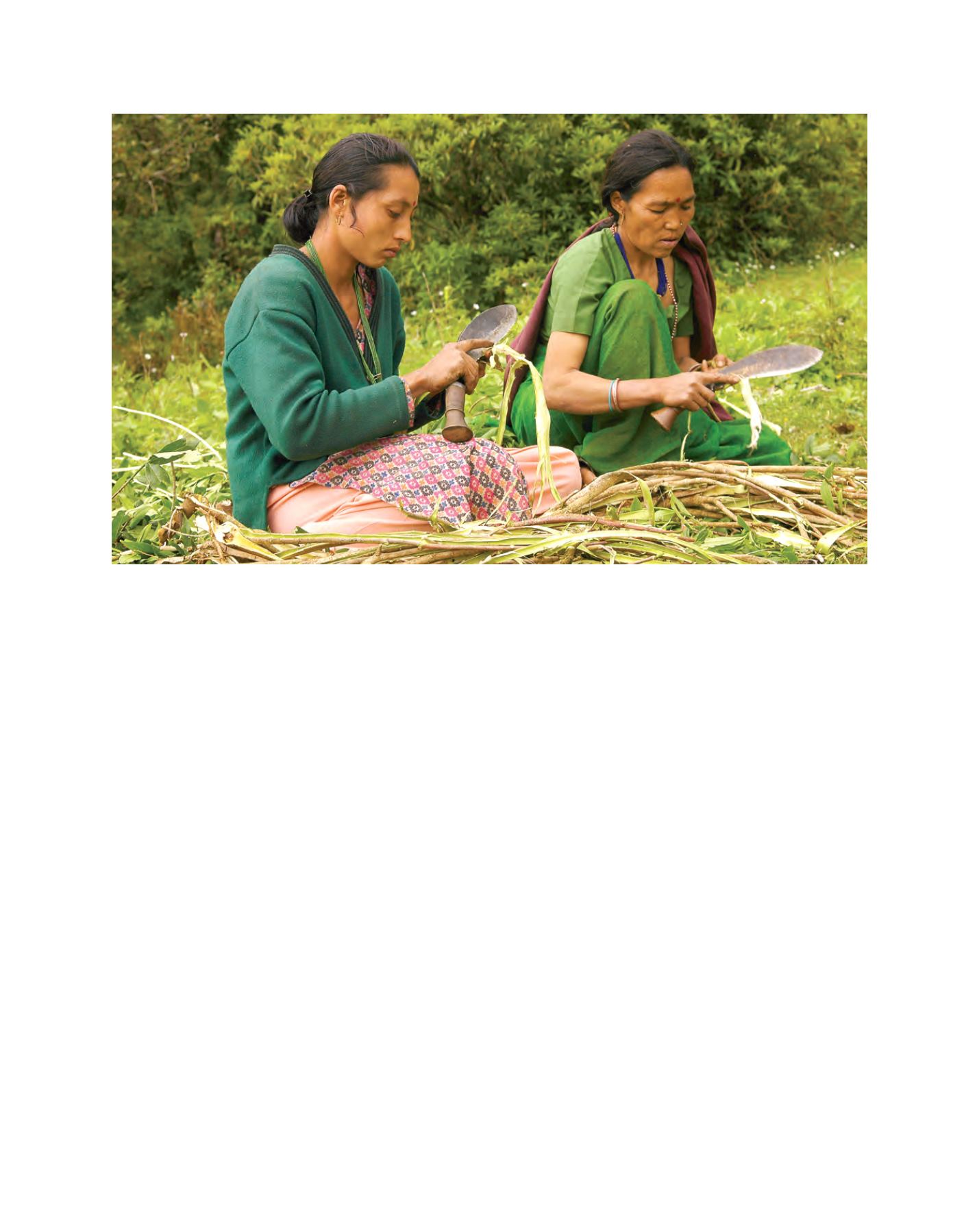

[
] 202
producers to benefit from FSC certification. And learning to work in
partnership to achieve certification is often one of the biggest benefits
of the certification process.
In Indonesia, the 550-member cooperative, Koperasi Hutan Jaya
Lestari (KHJL), has worked with partners in the private sector and
NGOs, to achieve a group certificate for their members’ teak forests.
The Forest Trust (TFT) is a membership organization, compris-
ing retail companies in Europe and the USA which are committed
to buying tropical hardwoods from FSC-certified forests, or those
actively working towards FSC certification. Jaringan Untuk Hutan
(JAUH) is a network of environmental and social non-governmen-
tal organizations (NGOs) in Sulawesi Province of Indonesia, with
expertise in community organization, government advocacy and
media campaigns. Together, TFT and JAUH have supported the
cooperative in its efforts to sell teak grown on its members’ farms
on the international market.
Achieving this has needed work on many different fronts. Legal
restrictions related to harvesting and transport permits meant that
one or two wood buyers in the province had gained a monopoly
position on teak prices. Individual farmers were obliged to sell their
teak locally for very low prices.
FSC certification has allowed the members of the cooperative to
sell their wood directly to TFT member factories in Java for a higher
price than that offered locally. Furthermore, through consultation
with the factories, a short-term loan was arranged to support the
cooperative process and pay for the initial permits needed for buying
and selling wood.
Working together has been essential for these farmers. Group certi-
fication made FSC certification cheaper and allowed them to obtain
the necessary permits and link directly to the international market.
Working in partnership with a regional NGO and a
network of buyers who give preference to FSC-certified
wood was also vital, as these partners brought in key
expertise and resources. Group membership offers oppor-
tunities for capacity-building, information sharing and
access to resources that are not open to individual farmers.
But it hasn’t all been plain sailing. Previous attempts
to set up cooperatives had failed because farmers had no
experience in managing them. This time JAUH and TFT
worked with the Indonesian Cooperative Department
to give farmers training on cooperative structures and
management, business practices and forest management.
The cooperative has been extremely successful,
growing from the initial membership of 196 individu-
als to the current level of 550 members. Perhaps more
importantly, with FSC certification came recognition
by the District and Provincial authorities of the farmers’
ability to supply the international market, and their
need to be recognized in regional forestry legislation.
A growing market improves people’s lives
Market demand for FSC-certified products is growing
around the world, driven by responsible manufactur-
ers, retailers and consumers. And growing demand for
FSC products is leading to improvements in people’s
lives in places like Nepal and Indonesia. Dhana Lama in
Nepal sums it up: “Products of our community forests
have been successfully marketed, good changes in envi-
ronment and economy have been observed and social
changes have been felt.”
Women cleaning Lokta bark in preparation for making paper
Image: ANSAB, Nepal
















